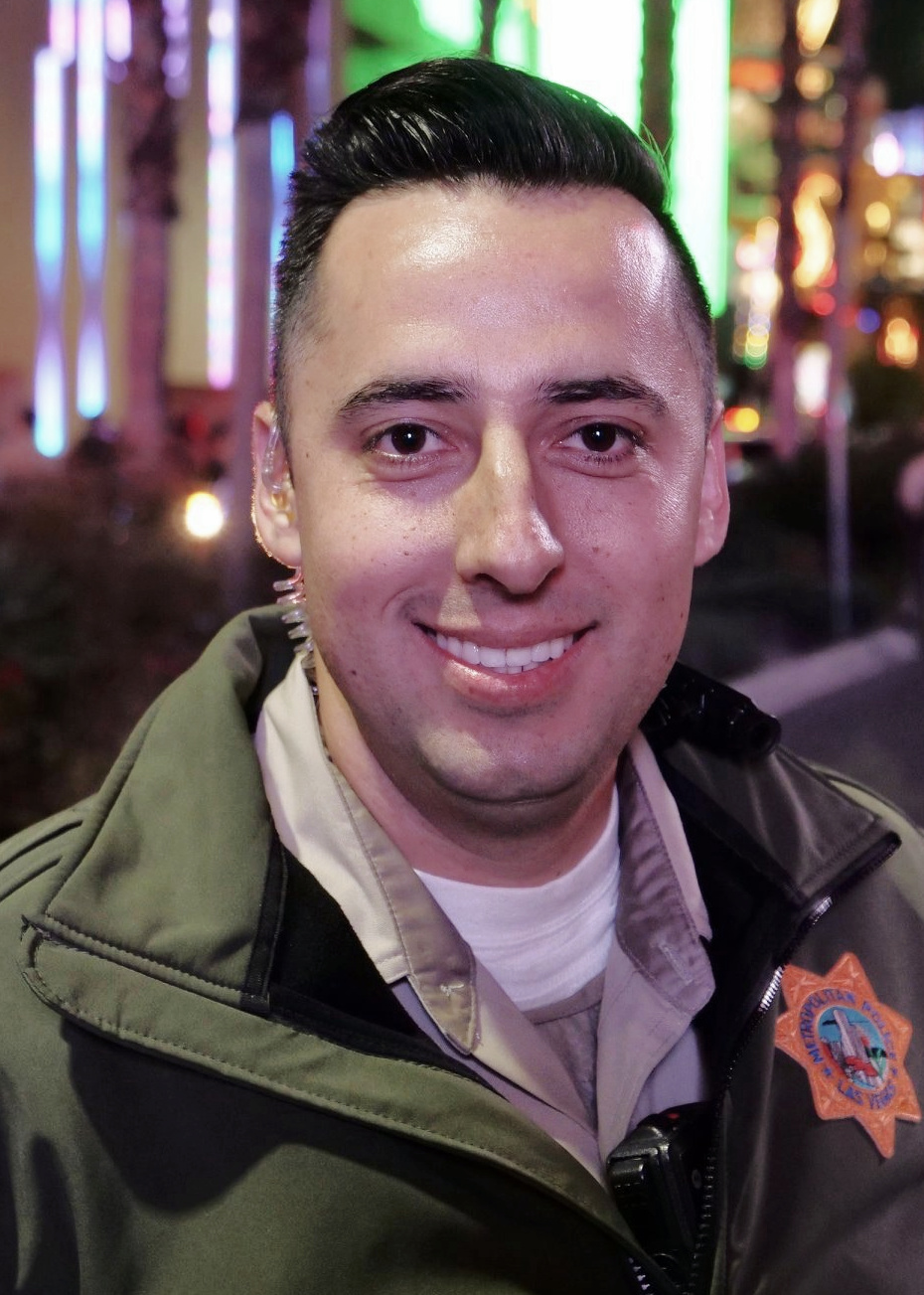Lieutenant Michael Rodriguez has served with the Las Vegas Metropolitan Police Department (LVMPD) since 2008. Throughout his tenure, he has held various leadership roles and contributed significantly to the department’s progressive approach to urban policing.
Hailing from Ann Arbor, Michigan, Lt. Rodriguez’s educational background includes two bachelor’s degrees from Michigan State University and a master’s degree from the University of San Diego.
Lt. Rodriguez’s journey in law enforcement parallels the dynamic nature of Las Vegas itself. Beginning as a patrol officer and later becoming a field training officer, he gained invaluable experience in the fundamentals of policing and conducting preliminary investigations. Transitioning into the role of a Public Information Officer, Lt. Rodriguez was deeply involved in LVMPD’s pioneering efforts to ensure transparency in communicating with the public following incidents involving officers’ use of deadly force.
As a first-line supervisor, Rodriguez led patrol squads in some of the valley’s most challenging, crime-ridden areas, mentored field training officers and trainees, and supervised investigative squads. Additionally, he served on LVMPD’s Use of Force Tactical Review Board as a peer sergeant, contributing insights and expertise.
Now, as a lieutenant, Rodriguez oversees a patrol shift of nearly 40 officers within a geographical area that responds to over 90,000 calls for service annually. His extensive firsthand experience within a large police agency has provided him with a deep understanding of the challenges and controversies facing modern policing. As such, Lt. Rodriguez is well-equipped to offer valuable insights to organizations navigating the complexities of the American law enforcement model.
What motivated you to be a LEPSL ambassador?
During my time in the program, I felt that the coursework was very relevant to the job and that the schedule allowed a working professional to accomplish the benchmarks reasonably. I would like the chance to offer that perspective to potential students.
Why did you choose the LEPSL program? What made LEPSL stand out in comparison to other schools/programs?
Several people within my agency had recommended the program to me. I was considering the University of Oklahoma’s program but ultimately chose USD because of its solid reputation among law enforcement leaders. The LEPSL program offers courses that apply to real-world policing and are taught by experienced professionals, not academics. I felt that the pace and schedule were designed for working professionals which made it attainable.
What were your concerns about starting a graduate program?
The cost and weekly commitment.
How did the LEPSL program help you achieve your career goals?
LEPSL has allowed me to think more critically in terms of law enforcement leadership.
What advice would you share with prospective LEPSL applicants?
The LEPSL program and USD in general come with a solid reputation among law enforcement leaders nationwide. As a graduate, I have been proud to tell people I attended USD and the program comes with its own name recognition.
What was the most unexpected part of the LEPSL program?
The most unexpected part of the program is how useful the coursework is. I definitely got something out of each class that I can use in my assignment.
What were you balancing while participating in the LEPSL program?
At work I was a supervisor in charge of nearly 15 officers and at home I was a husband and father to 3 young children. Balancing the requirements of the program was challenging but certainly doable.
How did you stay motivated throughout the program in the face of competing priorities in your life?
My motivation came from seeing the end goal which was promoting within my organization. I knew that a master’s degree would help me – it did. I am currently a lieutenant with aspirations to promote higher.
LEPSL Graduating Class:
2020
